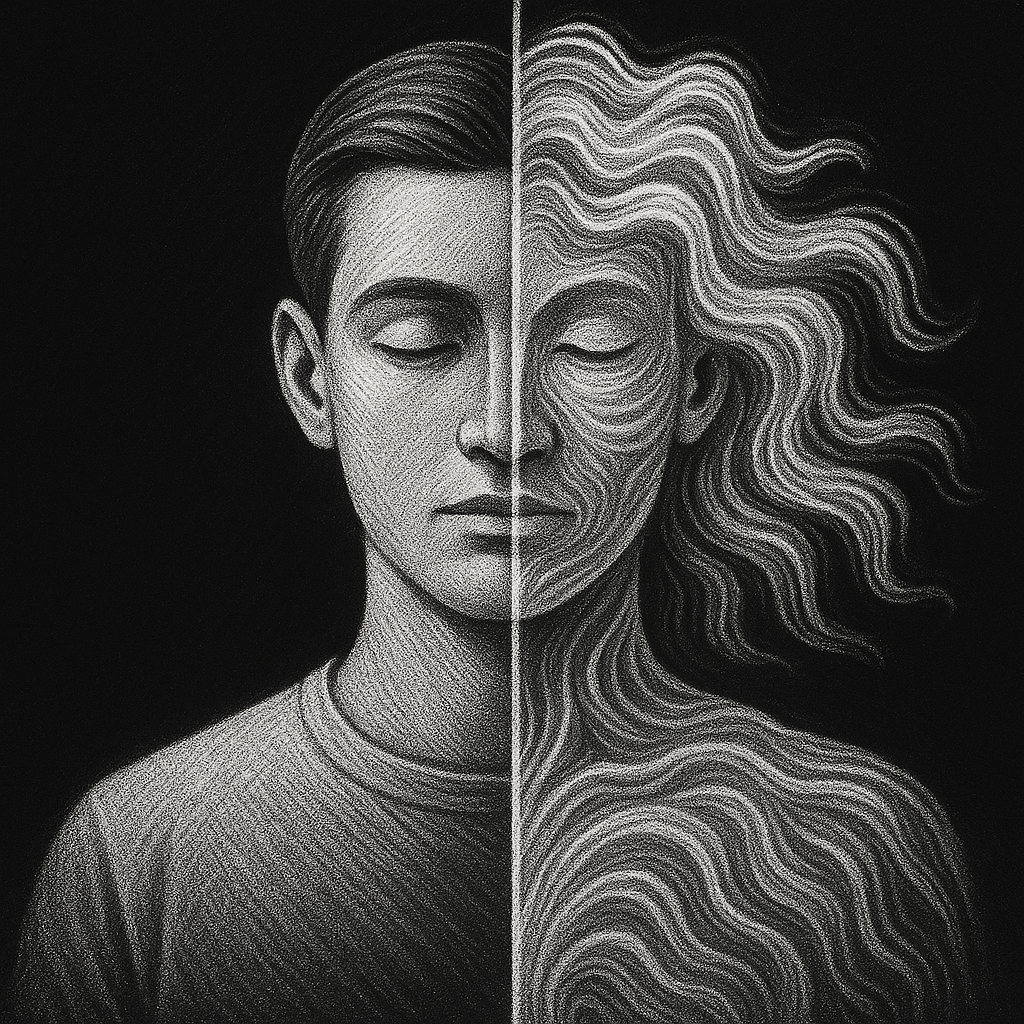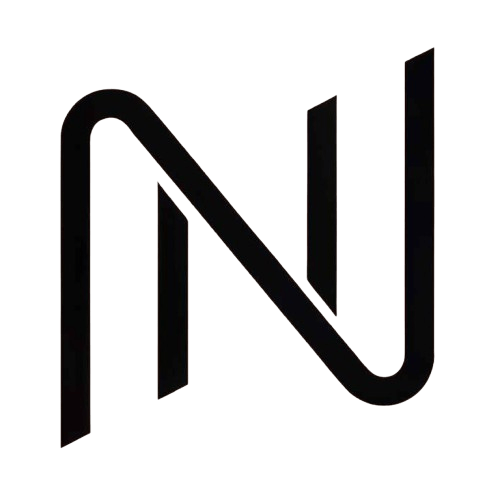Not A Subscriber?
Join a global group of ambitious readers on their quest to understand themselves, life, and business
Why life is a paradox you can’t solve
Over the past few years I've spent time on retreats with real masters who have gone deep into personal growth.
One concept kept coming up: transcending dualities.
At first, it sounded theoretical to me, like spiritual jargon.
But then I started noticing something.
Every time I’ve felt tension or friction in my life, it was because I'd clung to one side of a paradox and rejected the other.
If I'm right, you must be wrong.
If pleasure is good, pain is bad.
If I let go, I'll lose control.
These tensions are built into being human.
Part of you, including your logical mind, thinks in terms of dualities. You define yourself by what you are not. To the rational mind, the idea that opposites can coexist harmoniously feels paradoxical.
But when you fight the paradoxes and try to “solve” them, you inevitably end up frustrated. And your inner balance suffers.
For example, you might tell yourself Once I land the promotion, once I meet the right person, once I move to the perfect city, then I’ll be happy.
For a brief moment, when you attain your goal, you feel content. But then, almost immediately, it disappears.
You think that there’s something wrong with you because you constantly want different things and are never fully satisfied.
But happiness is never a permanent state.
And you will never “crack” life and have everything figured out.
Humans are paradoxes. We're made up of conflicting needs, fears, and ambiguities.
With this insight, tensions stop being problems to figure out and become invitations to experience life more deeply.
In this Perspective, I’ll explore five paradoxes that most of us feel acutely in our daily lives, and show that navigating them, not escaping them, is the only path forward.

1. Comfort vs. growth (the ambition paradox)
At your core, you want life to feel easy.
Your nervous system wants safety.
You are wired to do things with the least amount of effort, seek familiar and calorie-rich foods, and secure stable environments.
At the same time, you become restless if you get too comfortable.
Whenever I’ve achieved a big goal, it often feels anticlimactic. And my mind starts thinking what’s next?
This is the ambition paradox: you want comfort and growth. Stability and change. Rest and new adventures.
And this desire never fully goes away.
Humans have a tendency to return to a baseline level of satisfaction even after big positive (or negative) events. This is called hedonic adaptation. As much as you think that the new car or new job will keep you fulfilled, their positive effects very quickly wear off.
Hedonic adaptation keeps you striving. It fuels human progress.
Similarly, flow states live on the edge of your comfort zone, when you are engaged in an activity that stretches but doesn’t overwhelm you.
The reframe: Instead of choosing comfort or growth, hold both states at the same time. Learn to cycle between them. Push yourself through challenges and then recover. Get outside your comfort zone and then integrate what you’ve learned.
What this looks like: Live your life in seasons, not permanent states. Spend three months leaning into something challenging (new skill, difficult project, physical challenge). Then spend the next month in pure maintenance mode. When the restlessness returns, you know it's time to push again.
2. Choice vs. limitations (the paradox of more)
You think that more options should equal more happiness.
Wrong.
Too many options increase anxiety and the likelihood of feeling regret after making a decision.
Every mid-level professional I work with is stuck. They know they could do anything. Climb the ladder. Start a business. Freelance. Move to Bali.
Too many options in life will paralyse you. Instead of feeling free, you will feel trapped in an endless cycle of comparisons and what ifs.
Kierkegaard called it "the dizziness of freedom." The more doors open, the heavier the weight of choosing.
The reframe: Real freedom requires boundaries. Get clarity on what those boundaries are. Define your values, your priorities, your vision of "enough." Then eliminate 90% of the options without regret. Freedom isn't found in living in alignment with "enough."
What this looks like: Write down your non-negotiables. What matters more than anything? (For me right now: autonomy, deep work, time in nature.) Now look at every opportunity through that filter and make choices accordingly.
3. Belonging vs. authenticity (the connection paradox)
You need to belong.
You also need to be yourself.
These two needs are constantly at war.
To be accepted, you hold back opinions. You mask emotions. You follow rules you don't believe in.
That’s why so many people feel lonely even in relationships, or empty even when surrounded by friends.
Wholeness requires both belonging and authenticity. It means finding spaces where you can be fully yourself and deeply connected.
The reframe: Embrace the fact that it’s not about choosing between fitting in or standing out. It’s the freedom to belong without compromising, while simultaneously expressing yourself without disconnecting from others.
What this looks like: Audit your relationships. Ask: Can I share my real thoughts here without censoring myself? If not, you're trading authenticity for belonging, and it's costing you. Start saying the thing you're afraid to say. The right people will come closer. The wrong people will leave.
4. Acceptance vs. improvement (the paradox of the self)
Am I perfect the way I am?
Or should I become better?
The answer is both.
A healthy psyche understands that you are enough as you are.
But you also have an innate drive to grow. When you notice something you don't like about yourself, you're drawn to improve it. Awareness alone drives this. Deep down, you long to become whole.
The Stoics practiced amor fati - love your fate. Accept reality fully. And strive to live with virtue.
The reframe: Acceptance and improvement aren’t opposites. Acceptance is the ground from which improvement grows. Loving yourself doesn’t mean staying the same; it means creating change from a place of wholeness, not self-rejection. Congruence arises when you can say both I am enough, and I can grow.
What this looks like: Notice when you're trying to "fix" yourself from a place of disgust versus curiosity. Disgust sounds like: I'm so lazy, I need to force myself to work harder. Curiosity sounds like: I've been avoiding this project; I wonder what's underneath that resistance. One path leads to struggle. The other leads to sustainable growth.
5. Human vs. spiritual (the transcendence paradox)
Part of you wants to transcend.
To feel free, peaceful, whole, enlightened. To rise above your human limitations.
But you're also undeniably human.
Messy. Emotional. Reactive. Fragile. You get hungry, tired, jealous, and afraid. You crave comfort, validation, and meaning.
Some people reject spirituality entirely. But a part of them always feels like something's missing.
Others, especially those on a personal growth path, do the opposite. They try to transcend their humanity in pursuit of the divine. They strive to be endlessly calm, wise, and “zen,” while secretly judging themselves for their flaws and strong emotions.
But we are both human and spiritual beings at the same time. We have a body and a soul, a brain and a consciousness, a heart and a deeper presence that reaches beyond ourselves.
The more you dismiss your humanness, the further you drift from divinity.
The divine isn’t found by transcending the human, it’s found through it.
The human experience is not an obstacle to transcendence, it’s the path itself.
The reframe: Don’t seek to become purely spiritual or to reject it altogether. It’s to bring the divine into the human experience and to live with both parts of you at the same time.
What this looks like: Stop using spirituality as an escape from being human. When you're angry, don't immediately jump to I should be more zen about this. Feel the anger. Let it move through you. Then access the awareness that observes it. The spiritual practice isn't transcending your emotions; it's being fully present with them.
Living with life’s paradoxes
If life feels confusing, it’s probably because you’re trying to “solve it” by thinking harder and creating a controlled, linear path for the future. But life is meant to unfold in its own way.
The human condition is built on paradox.
You want comfort and growth, freedom and structure, belonging and individuality, self-acceptance and evolution, and, at your deepest level, to experience both your human form and the divine.
The mistake is believing you must choose one side.
So the next time you feel restless in comfort, anxious with too many options, lonely in a crowd, dissatisfied with yourself, or spiritually confused, remember: Life isn’t about eliminating tensions, it's about learning to hold them and live with them gracefully.

About the author Nicolai Nielsen
I am the bestselling author of 3 books, former McKinsey Academy Associate Partner, and the founder of Potential Academy.
My mission is to raise global consciousness through education and inspiration.




